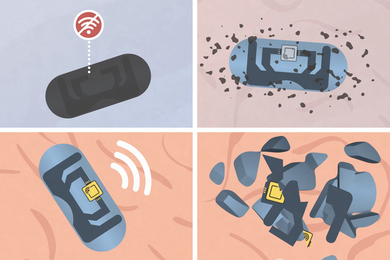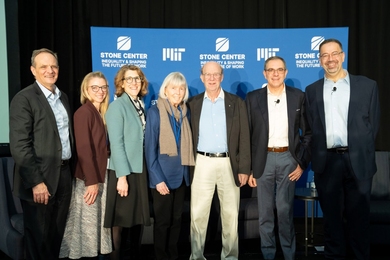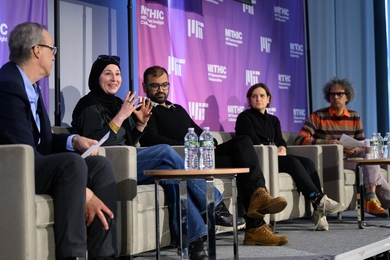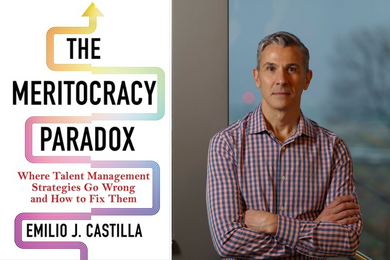In light of the SARS-CoV-2 virus and the increased need for social distancing, Career Advising & Professional Development (CAPD) quickly transitioned the annual MIT Spring Career Fair to a virtual event. Through the use of the Career Eco virtual career event platform, the 2020 Spring Career Fair was held virtually on April 8 for the first time ever, attracting 57 employer organizations and 472 MIT student and alumni participants.
CAPD staff felt that offering a virtual event was important, not just for the students who were already planning to attend prior to MIT transitioning to a remote campus, but also for those who had accepted internships or research opportunities for the summer, made travel plans, or had full-time job offers that were very suddenly disrupted.
CAPD staff organizers reflected about lessons learned and what the future holds in light of Covid-19.
Q: What recruiting challenges are MIT students facing in light of the Covid-19 virus?
A: MIT students, and really all college students, are facing unprecedented career challenges as a result of the spread of Covid-19, both in terms of needing to maintain social distancing and the effect of the virus on the overall economy. While many employers are finding ways to honor existing commitments to graduating students and summer interns, some students have unfortunately had their planned summer internship cancelled or an already accepted full-time job start date delayed. Even for those internships and job opportunities that will still be available to students, many will be working remotely this summer, and potentially doing work that is very different than originally planned. In addition, the process of networking and interviewing going virtual provides new challenges and requires a new approach and preparation by our students.
Q: How effective was the virtual career fair model for connecting employers with students for career exploration and seeking internship and job opportunities?
A: Surprisingly effective, despite this event not being originally conceived and planned as a virtual event. While there are certain intangible benefits connecting with an employer representative face-to-face, a virtual career fair provides opportunities to connect that can both mimic and even exceed those at an in-person career event.
The virtual Spring Career Fair facilitated an average of 58 candidates interacting with each employer, and over 21,000 messages sent during the course of the eight-hour event. It also provided opportunities to a wide range of MIT students; altogether, the participating employers listed over 100 majors/concentration areas in Career Eco that they were recruiting for, and over half of the attending employers were recruiting candidates with backgrounds in data analytics, mechanical engineering,systems engineering, and computer science and engineering. Other candidates in high demand were those with backgrounds in digital media and design, database management, hardware technology, chemical engineering, aerospace engineering, biomedical engineering, and industrial engineering.
On the candidate side, computer science and electrical engineering and mechanical engineering majors represented over 55 percent of the bachelor's candidates participating in the event (140 students); however, programs were more diverse among those pursing master's degrees, with only 21 percent (19 students) from computer science and electrical engineering and mechanical engineering combined. Over half of the candidates attending are pursuing bachelor’s degrees, nearly 20 percent are pursuing master's degrees, 11 percent are pursuing PhDs, and 3 percent are postdocs. The remaining participants were alumni.
The virtual format also gave students and employers a lot of autonomy around how they connected, with students able to “queue” up for multiple employers simultaneously. Employers had instant access to the resumes of the students they were chatting with, and students could view job opportunities each employer was offering prior to the fair. The Virtual Career Fair also provided an added layer of accessibility; one student provided feedback after the fair that they had previously not been able to attend in-person career fairs because of accessibility issues, but with a virtual fair, those obstacles to participation were eliminated.
Q. Based on the virtual Spring Career Fair experience, what can we anticipate for the future of career fairs at MIT as we seek ways to safely connect employers with students?
A: Definite predictions are difficult to make when in the midst of a crisis. However, the benefits of virtual events, including greater accessibility and flexibility for students, along with cost savings for employers, mean that they will likely play a role going forward in the MIT recruiting experience, regardless of the progression of the current social distancing policies. In addition to gathering feedback from student and employer participants, CAPD will be developing a tip guide to share throughout the MIT community about planning and setting up virtual career events. It is also important to realize that virtual career events extend well beyond moving career fairs to an online space. Company presentations, group interviews, employer panels, and more can be hosted on virtual career platforms, and determining how to effectively utilize the tools that are available, both now, when in-person events are not possible, and after it is safe again to hold a mix of online and in-person events will be an ongoing task for CAPD and all of those at MIT involved in helping students establish their careers. Virtual career fairs and events should not be seen as a temporary Band-Aid on the recruiting process, but rather a set of tools in a toolbox where the older tools cannot be used for a moment — they are still useful and won’t go away when the old tools are available to us again.









